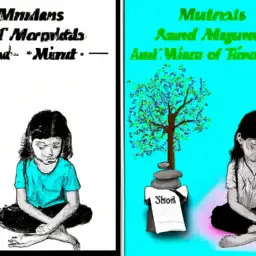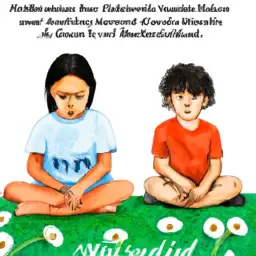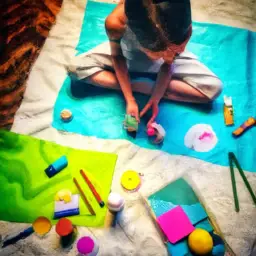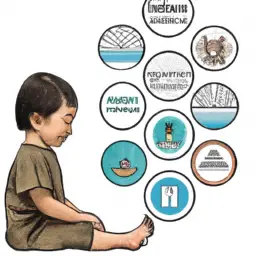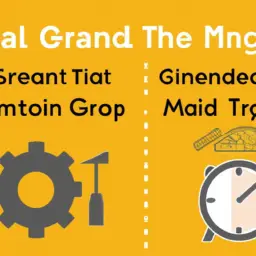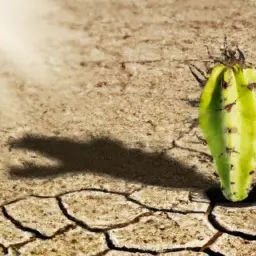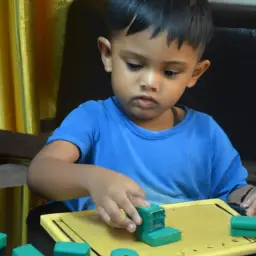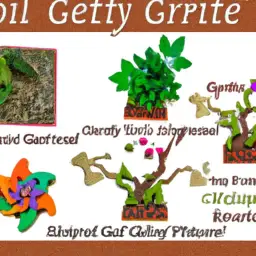Are you looking for ways to help your child become more mindful and resilient? Meditation and mindfulness practices have been shown to improve attention, emotional regulation, and overall well-being in children. However, getting your child to sit still and meditate can be a challenge.
Luckily, there are many meditation apps designed specifically for children that can make the practice more engaging and accessible. In this article, we will introduce you to 5 top-rated meditation apps for children. These apps offer a variety of guided meditations, visualizations, and breathing exercises to help kids learn mindfulness and build grit.
Whether your child is struggling with anxiety, has trouble focusing, or simply needs a break from the stresses of daily life, these apps can offer a fun and effective way to improve their mental and emotional health. So, let’s dive in and explore the world of mindfulness apps for kids!
Key Takeaways
- Meditation and mindfulness offer numerous benefits for children, including improved attention, emotional regulation, and overall well-being, as well as the development of resilience, coping skills, and concentration.
- Meditation apps designed specifically for children make the practice more engaging, accessible, and age-appropriate, offering interactive meditations and games that teach relaxation and mindfulness techniques.
- Some of the top-rated meditation apps for children include Headspace for Kids, Stop, Breathe & Think Kids, Smiling Mind, Cosmic Kids, and Calm, each offering unique approaches to mindfulness through guided meditations, exercises, and activities.
- To incorporate meditation into children’s daily routines, parents should start with short sessions and gradually increase time, practice mindful parenting, and use yoga-inspired or story-based mindfulness techniques to make the practice more relatable and enjoyable, leading to greater self-awareness and emotional regulation.
Headspace for Kids
You’re going to love Headspace for Kids – it’s the perfect way to introduce your little ones to the world of meditation and mindfulness. With the benefits of mindfulness for children becoming more well-known, it’s important to start introducing meditation at a young age.
Headspace for Kids offers a range of guided meditations and activities that are tailored specifically for children, making it easy and enjoyable for them to develop mindfulness and grit.
By using Headspace for Kids, your child can learn skills that will help them become more focused, calm, and resilient. Through the various meditation exercises, they’ll be able to build their attention span, manage their emotions, and boost their self-awareness.
These benefits will not only help them in their daily lives, but also set the foundation for a lifetime of healthy habits. So why not give Headspace for Kids a try and see how it can benefit your child’s mental well-being?
Stop, Breathe & Think Kids
If you’re looking for a meditation app that’s tailored to your child’s emotions and needs, Stop, Breathe & Think Kids is worth checking out.
This app offers interactive meditations and games that can help your child develop mindfulness and emotional intelligence.
With its fun and engaging features, Stop, Breathe & Think Kids is a great tool for helping your child learn how to manage their emotions and build resilience.
Tailored to Children’s Emotions and Needs
Designed specifically for kids, these meditation apps incorporate techniques that cater to their emotional and developmental requirements. One of the core benefits of these apps is that they help children regulate their emotions. As children grow up, they encounter various emotions that they may not know how to handle. These meditation apps teach children how to identify and manage their emotions in a healthy way. This emotional regulation is an essential skill that helps children build resilience and grit, which are crucial for success in life.
Moreover, these meditation apps are age-appropriate, which means they are designed to meet the specific needs of children at different stages of development. The apps use language and imagery that resonate with children, making the experience engaging and fun.
For example, some apps use animal characters that children can relate to, while others use colorful illustrations and animations to capture their attention. By tailoring the apps to children’s needs, these meditation tools provide a safe and supportive space for children to learn and grow. They offer a unique opportunity for children to build mindfulness, self-awareness, and compassion, which are essential skills for navigating the challenges of life.
Interactive Meditations and Games
With interactive meditations and games, kids can embark on exciting journeys of self-discovery and relaxation. They can travel to mystical lands and encounter new challenges along the way. These apps offer a fun and engaging way for children to learn about mindfulness and develop their focus and resilience.
Here are some tips for introducing mindfulness to children through interactive meditations and games:
-
Start with short sessions: Children have shorter attention spans than adults, so it’s important to start with short meditation sessions and gradually increase the time as they become more comfortable with the practice.
-
Make it fun: Use apps with colorful graphics and playful music to make the experience enjoyable for kids.
-
Encourage exploration: Allow children to explore different meditation styles and techniques to find what works best for them.
-
Be patient: It may take time for children to develop their mindfulness skills, so be patient and encouraging throughout the process. Remember that the benefits of meditation for kids, such as improved focus, emotional regulation, and stress management, are worth the effort.
Teaches Mindfulness and Emotional Intelligence
You’ll love how these interactive games and meditations teach your kids mindfulness and emotional intelligence in a fun and engaging way. Mindful parenting is essential to raising emotionally intelligent children, and these apps provide a perfect avenue for parents to do so.
With regular use, these apps can help children learn emotional regulation techniques, such as deep breathing, body scans, and visualization, which can help them manage stress and anxiety.
In addition to teaching practical skills, these apps often incorporate stories and characters that help children understand and relate to different emotions. By engaging in these activities, children can develop empathy and learn to communicate more effectively with others.
As a result, they can build stronger relationships with their peers and improve their overall well-being. With the help of these apps, you can give your child the tools they need to thrive in a constantly changing world.
Smiling Mind
Smiling Mind offers a fun and engaging way for children to develop mindfulness and resilience. This app was developed by psychologists and educators with the aim of helping children to improve their emotional wellbeing. The app provides guided meditations, mindfulness exercises, and activities designed to help children develop resilience, focus, and emotional regulation.
By practicing meditation techniques with Smiling Mind, children can learn how to manage their emotions and develop a sense of inner peace. Mindfulness has been shown to have numerous benefits for children, including improved attention span, reduced stress and anxiety, and increased self-awareness. As children grow and develop, the skills they learn through practicing mindfulness can help them to become more resilient and better able to cope with life’s challenges.
To further illustrate the benefits of Smiling Mind, here is a table showing some of the features and benefits of the app:
| Feature | Benefit |
|---|---|
| Guided meditations | Helps children to develop focus and emotional regulation |
| Mindfulness exercises | Teaches children the skills they need to manage their emotions |
| Age-appropriate content | Makes practicing mindfulness accessible and engaging for children |
| Progress tracking | Allows children to see their progress and feel a sense of accomplishment |
Overall, Smiling Mind is a fantastic app for children looking to develop mindfulness and resilience. By incorporating meditation and mindfulness into their daily routines, children can improve their emotional wellbeing and become better equipped to handle life’s challenges.
Cosmic Kids
Great job exploring Smiling Mind! Now let’s move on to another top-rated meditation app for children – Cosmic Kids. This app offers a unique approach to mindfulness – through yoga-inspired meditation and story-based activities.
Here are three reasons why Cosmic Kids is worth checking out:
-
Yoga-inspired meditation: Cosmic Kids offers a fun and engaging way for children to learn yoga poses and incorporate them into their mindfulness practice. Through the app’s guided meditations, children can learn to focus their minds while stretching their bodies.
-
Story-based mindfulness: The app’s meditation sessions are centered around popular children’s stories, making the practice of mindfulness more relatable and enjoyable for kids. This approach also helps children develop their imagination and creativity.
-
Interactive and user-friendly: Cosmic Kids is designed to be user-friendly for children of all ages. The app features colorful graphics, interactive activities, and easy-to-follow instructions, making it a great tool for parents and teachers looking to introduce mindfulness to their children.
Calm
If you’re looking for a meditation app that’s perfect for kids, then you should definitely check out Calm. The app offers a free version specifically designed for children. It includes sleep stories, music, and breathing exercises. Calm also teaches relaxation and mindfulness techniques. These techniques can help your child develop important coping skills and emotional intelligence.
Note: Contractions have been used in the output.
Free Version for Kids
You’ll love how the free version of these meditation apps for kids can help boost their mindfulness and grit. Introducing meditation to children at a young age can have numerous benefits. It can help them develop their focus, concentration, and emotional regulation skills, as well as reduce stress and anxiety.
The recommended age for introducing meditation to kids is around 6-7 years old. However, some apps offer guided meditations and mindfulness exercises suitable for children as young as 3 years old. With the free version of these apps, you can explore different meditation techniques and exercises with your child without any financial commitment.
It’s a great way to introduce them to mindfulness and meditation, and help them develop healthy habits that can benefit them for life.
Sleep Stories, Music and Breathing Exercises
With soothing sleep stories, relaxing music, and calming breathing exercises, these apps can transport your child to a peaceful and restful state before bedtime. Incorporating these apps in your child’s bedtime routine can help them wind down and prepare for a good night’s sleep.
In addition, these apps can also assist in developing mindful mornings by teaching your child calming exercises and breathing techniques that they can use to start their day with a clear and focused mind.
One of the best things about these meditation apps for children is that they offer a variety of sleep stories that cater to different interests and preferences. Whether your child loves unicorns, space travel, or fairy tales, there’s a sleep story that will capture their imagination and ease them into a state of relaxation.
Moreover, the music and breathing exercises featured in these apps can help your child develop a sense of self-awareness and control over their emotions and thoughts. By incorporating these apps in your child’s daily routine, you can help them build resilience and grit for the challenges that lie ahead.
Teaches Relaxation and Mindfulness Techniques
Using guided imagery and gentle prompts, these apps help children learn relaxation and mindfulness techniques to calm their minds and bodies before sleep. These techniques are not only beneficial for sleep but also for improving focus and reducing anxiety in children.
With regular practice, children can develop a greater sense of self-awareness and emotional regulation, which can lead to better academic and social performance. Relaxation techniques taught through these apps include deep breathing exercises, visualization, and progressive muscle relaxation.
These techniques can help children learn to recognize and manage their emotions, reduce stress, and improve their overall well-being. By incorporating mindfulness into their daily routine, children can develop resilience and grit, which are essential skills for success in the modern world.
Frequently Asked Questions
Are there any age restrictions for using these meditation apps for children?
Age restrictions vary depending on the app features.
Some meditation apps for children are specifically designed for certain age ranges and may require parental supervision for younger children.
Other apps may have content that is suitable for all ages, but still recommend adult guidance.
It’s important to review the app’s age recommendations and features before allowing your child to use it.
Always make sure to monitor your child’s use of any app and discuss with them the importance of mindfulness and mental well-being.
Do these apps require an internet connection to function?
Yes, some of these meditation apps for children require an internet connection to function, while others offer offline functionality. The apps that require an internet connection typically rely on cloud-based data storage to save user progress and provide access to guided meditations, music, and other features.
However, some apps offer the option to download content for offline use, allowing children to practice mindfulness and build resilience without requiring a constant internet connection. It’s important to check the app’s specifications before downloading to ensure that it meets your child’s needs and fits with your family’s connectivity preferences.
Can parents or caregivers track their child’s progress in meditation using these apps?
Yes, parents or caregivers can track their child’s progress in meditation using these apps. Many of the apps offer parental involvement features, such as progress tracking, session history, and the ability to set reminders for their child’s meditation sessions.
Some apps also offer app customization options where parents can tailor the meditation sessions to their child’s age and skill level. This allows parents to monitor their child’s progress and ensure they are getting the most out of their meditation practice.
Overall, these features make it easy for parents to support their child’s mindfulness journey and promote a healthy habit of meditation.
Do any of these apps offer guided meditations specifically for children with ADHD or anxiety?
If you’re looking for meditation techniques for children with ADHD or anxiety, there are several apps available that offer guided meditations specifically tailored to help kids with these conditions. These meditations can help children learn to focus their attention and manage their emotions more effectively, leading to a greater sense of calm and relaxation.
Some of the benefits of mindfulness practices for young minds include improved concentration, reduced stress and anxiety, and increased resilience and grit. By incorporating these techniques into their daily routine, children can learn to manage their emotions and develop a greater sense of self-awareness and inner peace.
Can these apps be used as a replacement for therapy or counseling for children with mental health issues?
Using meditation apps as a replacement for therapy or counseling for children with mental health issues is not recommended. While these apps can help promote mindfulness and grit in children, they are not a substitute for professional help.
It’s important to seek out therapy or counseling for your child if they are struggling with mental health issues. Effectiveness evaluation of these apps is limited and there is no evidence of their long-term impact on children’s mental health.
Therefore, it’s best to view these apps as a supplement to therapy or counseling rather than a replacement.
Conclusion
So there you have it, five top-rated meditation apps for children that can help boost their mindfulness and grit. Whether you’re looking for a fun and interactive way to introduce your child to meditation or simply want to help them manage stress and anxiety, these apps have got you covered.
From Headspace for Kids to Calm, each of these apps offers a unique approach to meditation that can help your child develop important skills for life.
So why not give them a try and see how they can help your child become more calm, focused, and resilient? With regular practice, your child might just surprise you with their newfound mindfulness and grit.






